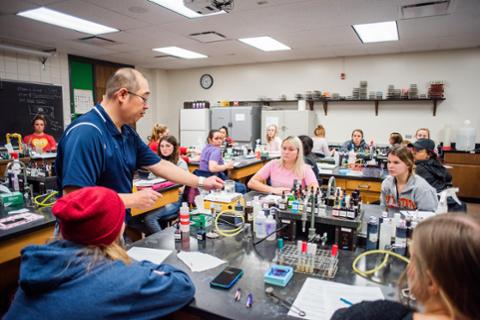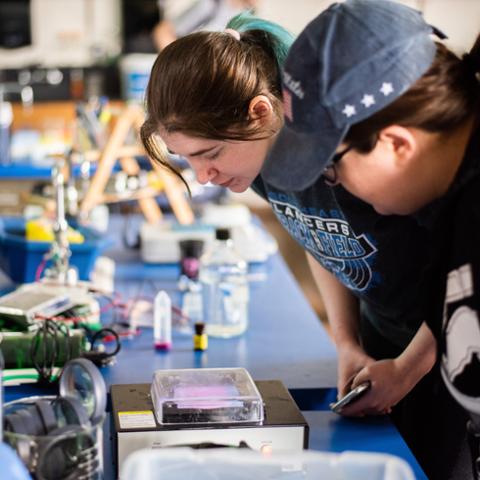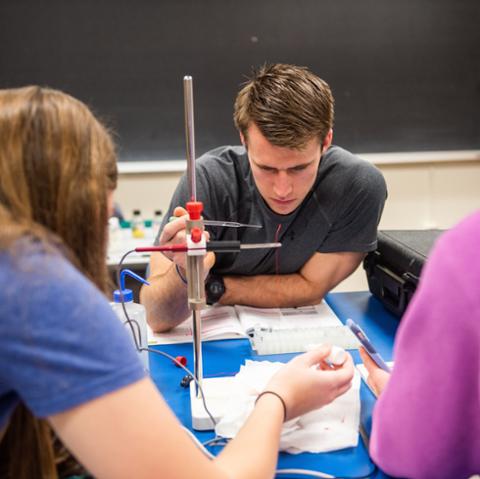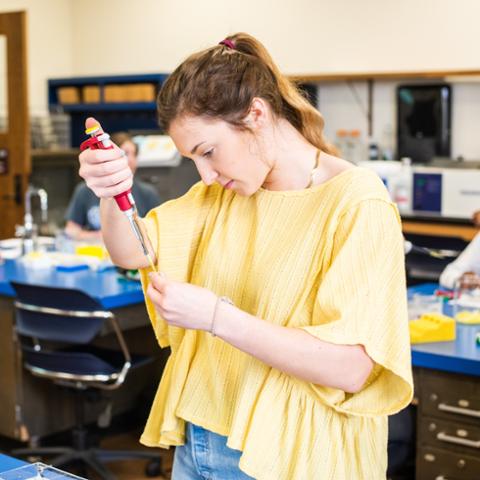Medical Laboratory Sciences
Major in Biology with an Emphasis in Medical Laboratory Sciences
Play a critical role in the diagnosis and treatment of diseases.
Through the Medical Laboratory Sciences emphasis at Pitt State, improve patient outcomes and advance the field of medicine.
Our curriculum teaches students how to obtain accurate and reliable lab test results. Medical laboratory sciences help to prevent errors and contaminations, ensuring that patients receive the correct treatment.

Our program embraces the latest advancements in laboratory technology and techniques. Be prepared for the rapidly evolving landscape of medical diagnostics.

Develop proficiency in performing a wide range of laboratory tests, interpreting results, and troubleshooting technical issues.

Assist faculty in data collection that can become published research or win awards at conferences.
Classroom topics for the Medical Laboratory Science emphasis
Medical lab science classes provide foundational knowledge essential for understanding and conducting diagnostic analyses in the context of diseases and clinical conditions including:
-
Biology: Foundations for understanding diseases in medical lab science.
-
Anatomy: Structural knowledge crucial for diagnostic interpretation.
-
Physiology: Functional understanding for medical lab analysis.
-
Genetics: Application of genetic principles in diagnostics.
-
Microbiology: Pathogen identification for infectious disease analysis.
-
Immunology: Study of immune system responses for diagnostics.
-
Chemistry: Applied chemistry for accurate clinical testing.
Our students train in laboratory techniques and procedures, instrumentation, quality control, and lab management.
What is a Medical Technologist?
Also known as clinical laboratory scientists, medical technologists are responsible for performing a wide range of tests that help diagnose and treat diseases. The duties of a medical technologist include:
- Developing and evaluating new test procedures: They perform a variety of tests like blood counts, urinalysis, bacteriology cultures, and tissue analysis to identify the presence of disease and infection.
- Performing quality control: They interpret test results, verify their accuracy, and report the results to physicians and other healthcare workers.
- Maintaining complex chemical machinery: They operate lab equipment, ensuring that it is functioning properly and calibrated correctly.
- Educating other laboratory professionals: They participate in ongoing professional development to stay current with the latest advances in medical laboratory science.
Careers for Medical Laboratory Sciences graduates
- Medical or Clinical Laboratory Scientists
- Medical technologists
- Blood Bank Supervisors
- Doctors
- Clinical Laboratory Science Practitioners
- Pharmaceutical Laboratory Instrument Sales/Technical Specialists
Pitt State prepares you to pursue certifications after graduation. Certified Medical Technologists can enter careers in clinical laboratory work, academic research, public health, and the pharmaceutical industry.
Additional information
Biology - Medical Laboratory Sciences Degree Map download
Catalog – see catalog for the School of Science and Mathematics